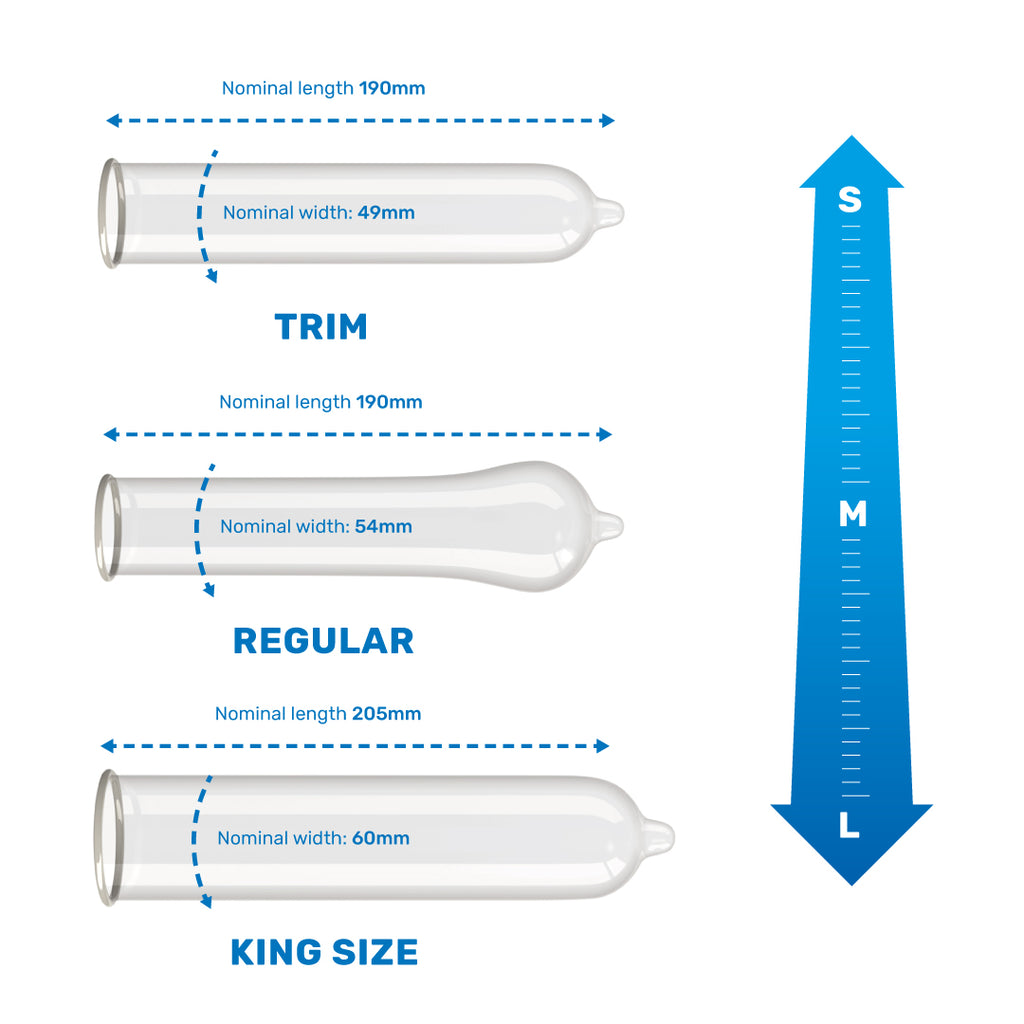
Back-to-Uni Special: Navigating Safer Sex for College and University Students
As we bid farewell to the Summer months, the cooler and crisp month of September ushers in a new academic year for college and university students. This time of year can mark an exciting season for academic and emotional growth; meeting new friends, late-night study sessions, having new experiences and increasing independence. Whilst all this sounds exciting, it’s important not to forget about prioritising safer sex and sexual wellbeing. Our ‘Back-to-Uni Special’ is just the thing to help you ensure that your college and university experience keeps you on track, empowering you with all the right knowledge so you can continue making healthy informed choices about safer sex and your sexual health.
Back to Uni: Embrace safer sex
Condoms are the perfect way of practising safer sex when you’re back at uni as they act as a barrier between genitals, preventing any sexual fluids from being transferred. Not only do they protect against sexually transmitted infections and reduce the risk of unintended pregnancy, they also come in different sensations and flavours to ensure your sex-life stays satisfying and pleasurable.
Make sure you always keep your favourite condom with you, just in case the moment takes you; whether you’re in a committed relationship or keen to explore new connections.
Being able to have an open and honest communication with your partner about safer sex is essential in maintaining sexual health. Discussing your sexual preferences, desires, boundaries and whether you have been tested for sexually transmitted infections can ensure that you continue to embrace safer sex whilst prioritising your sexual health and wellbeing.
Ensuring you have regular testing for sexually transmitted infections is another way of ensuring you prioritise safer sex. Urine tests or self-taken swabs can test for Chlamydia, Gonorrhoea, Syphilis and HIV with most test centres or universities offering free self-taken test kits. The majority of sexually transmitted infections can take up to 12 weeks to detect, so if you have had unprotected sex, it’s a good idea to test after this time-period. Testing after every new partner or annually is a good way of maintaining your sexual wellbeing whilst continuing to practise safer sex when you’re back at uni.
Always respect your partner’s boundaries and ensure that you have explicit agreement before engaging in any sexual activity. Ensuring you have valid consent is vital for any sexual activity or intercourse that takes place. To find out more about consent… click here
Back to Uni: Contraception choices
As you focus on your studies and personal growth, it’s important to be able to access contraception that aligns with your lifestyle and preference. Here are a few contraceptive options to consider;
Contraceptive pill
Contraceptive pills are tablets that are taken regularly to thicken the mucus of the womb, making it harder for sperm to reach the egg thus preventing pregnancy. Contraceptive pills come in two different varieties; the combined pill or the mini pill. The combined pill contains two hormones; oestrogen and progesterone and are taken for 21 consecutive days, followed by a 7-day break. Whilst the mini pill contains progesterone only, and is taken every single day without a break. Whilst contraceptive pills are designed to prevent pregnancy, condoms need to be used alongside them to prevent sexually transmitted infections.
Condoms
Condoms are a good way of maintaining sexual health as they are a barrier method of contraception, and protect against contracting sexually transmitted infections and pregnancy by stopping sperm from coming into contact with the vagina. Condoms come in a range of sizes, sensations and flavours, and even come in an internal condom for the vagina.
Have a latex allergy? There’s also a non-latex condom available - so there’s no need to risk your sexual health whilst back at uni.
Long-acting Reversible Contraceptives (LARCs)
Long-acting Reversible Contraceptives (LARCs) are the perfect type of contraception for those that prefer a method they can forget all about. LARCs usually last between 12 weeks and 10 years, depending on the type of contraception you choose. The depo is an injection that is given every 12-13 weeks, whilst the implant is a small, flexible rod that is placed under your skin and lasts for around three years.
Both the Intrauterine device (IUD) and intrauterine system (IUS) are compact, plastic devices that are placed inside of the uterus. The IUD is infused with copper and offers a long-lasting non-hormonal contraceptive option, lasting between 5-10 years, based on the IUD variant you choose. Meanwhile, the intrauterine system (IUS) slowly releases the hormone progesterone into the uterus, and typically lasts for around 3-5 years. Like the contraceptive pills, LARC’s only offer protection against pregnancy, and will need to be used alongside condoms to prevent sexually transmitted infections to ensure you continue to practise safer sex.
Emergency contraception
Sometimes accidents happen, and if you’re not on any contraception or have found yourself having unprotected sex, the emergency contraception, also known as the morning-after pill can help protect you from unplanned pregnancy. The emergency contraception is mostly taken as a tablet, but having an emergency coil fitted can sometimes take place, depending on the circumstances. The two main types of morning-after pill you are likely to be prescribed are Levonelle, which can be taken up to 72 hours after having unprotected sex, or ellaOne, which can be taken up to 120 hours after having unprotected sex.
Back to uni: Maintaining Sexual Health
Taking care of your sexual health extends beyond the basics of contraception and safer sex practices - let’s explore how to ensure that you maintain your sexual wellbeing too.
Your mental and emotional health can play a significant role in your sexual health. If you’re feeling anxious about the new school year, or stressed about impending deadlines - this can impact on your sex-life, causing lower libido and sexual arousal. It’s important if you are struggling with mental health concerns or stress, that you speak to someone on campus who might be able to offer support. Alternatively, ensure you are staying hydrated and prioritising rest and self-care activities, such as meditation or exercise.
Ensure you communicate your sexual boundaries to your partner. If you don’t feel comfortable engaging in sexual activity, it’s ok to say so. Although back-to-uni is a time for exploration, it’s important to not neglect your own needs and boundaries or feel pressured into doing something you don’t want to do.
If you are taking drugs or engaging in excessive alcohol use, be mindful that it can affect your decision-making capabilities which may lead to unprotected sexual encounters and unsafe sex practices. If you have engaged in unprotected sex, ensure that you seek support from your uni medical centre and take emergency contraception and make sure that you have a sexual health screen.





